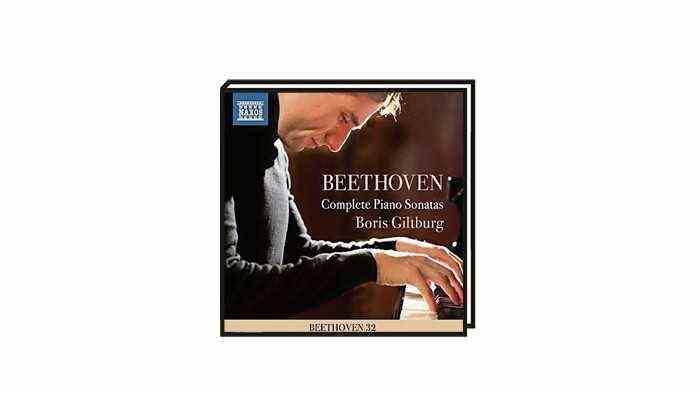Ludwig van Beethoven remains the sovereign in the quota kingship, even after the commemoration of the 250th birthday. The symphonies, the string quartets all tapped and questioned, now again the 32 entertainingly arousing ones Beethoven’s piano sonatas gathered, played by the 1984 born in Moscow Boris Giltburgwho came to Israel with his family as a child. A kind of antipode to the ubiquitous Igor Levit, also of Russian descent, grew up in Hanover. An “opponent” stylistically, in terms of content, emotionally. Giltburg approaches the sonatas in a completely different way: where Levit inspires or disturbs with speed, speed and nervous tension, Giltburg remains calm: breathing deeply, he takes time for sound articulation, melodic lines, insists on the peculiarities of musical characters, listens to the type of every sentence.
Giltburg’s non-legato art is just as impressive as the rhythmic freedom of his design, which, even in the tumult of the passages of the “Appassionata” or the “Waldstein” sonata, never seems to be turned on by machine. Clairaudiently he unfolds the meaning and the details of each of the sonata movements. How this works can be seen in two early rondo finals, the Sonata in A major and E flat major. Where many colleagues, including Levit, force their way forward, Giltburg emphasizes the charm of these movements, which Beethoven unmistakably provided with the request “Grazioso”. In the last five sonatas that remained mysterious, Giltburg succeeded in creating true miracles of musical reflection – by allowing Beethoven’s clashing ideas to come to themselves unadorned and full of tension. The exertion of the hard work on the piano keys is definitely audible. Boris Giltburg underpins his picture of Beethoven with a substantial booklet essay (Naxos).
There are new audio documents from the conductor and pioneer of historical performance practice, who died in 2016 Nikolaus Harnoncourt. In 1986 he founded the “Styriarte” festival in Graz, where he made the Chamber Orchestra of Europe his musical mouthpiece. The dynamically pointed “speaking” of sounds and forms was Harnoncourt’s idea and goal of every orchestral work, here with the heavyweights Haydn, Mozart, Beethoven, Brahms. It is extraordinary, with what fiery, sometimes violent determination Harnoncourt and his musicians realize the impulses of Haydn’s military symphony or Mozart’s “Posthorn” serenade, no, conjure up. The listener understands “sound language” beyond any conceptuality – every symphonic word also in Beethoven’s fifth, seventh and Brahms’ fourth symphonies. Plausibility of musical understanding, vividly ordered, flawless (ica classics).
No composer has tied his music so strongly to language, to speaking, as Leos Janacek – Master of the invention of “speech melody”. The cycle On overgrown paths brings together fifteen pieces for piano which, in their shocking brevity of personal memory tones, seem related to Mussorgsky’s bitter drama. The new arrangement of the cycle (Daniel Rumler), created for the ensemble led by Igor Karsko Camerata Zurich, ensures that the tonal space becomes larger, that the strings-determined scenario of the composer’s only felt youth in the Moravian landscape becomes significantly more concise. The gloomy sound figures and sharp-edged contrasts on Janacek’s threatening and beautiful paths in life thus acquire more tonal plasticity and transparency than on the piano. An additional coup of the captivating recording are the texts that the French writer Maia Brami provided for Janacek’s cycle and recited here herself: another medium of poetry (ECM).
The very particularly creative, popular type of historicism plays on this Attacca Quartet from Brooklyn – with the hardly provocative mixture of epochs and styles, of old and new. The four strings of the New York ensemble, founded in 2003, turn to the dark art paths of vocal Renaissance music, following Arvo Pärt’s minimalist, barren “Summa”. Madrigals by Luca Marenzio, John Dowland and Orlando Gibbons light up in the dazzling edit mode for string quartet. Then suddenly, as a modern catchy tune, the third quartet by Philip Glass, known as the sound from Paul Schrader’s film of the same name “Mishima”. At the end Pärt’s “Fratres”, the brooders clear away (Sony).

